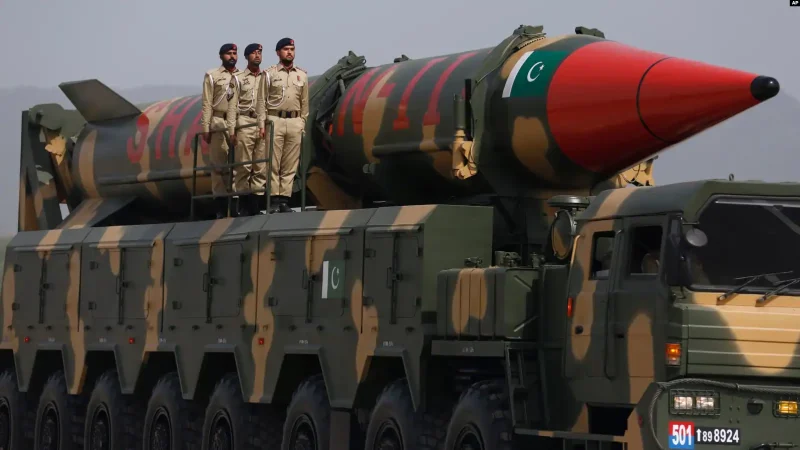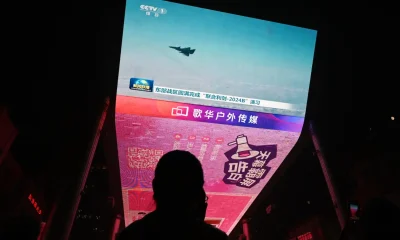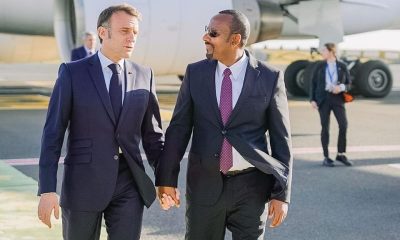Top stories
China Reaffirms Support for Myanmar Junta Amid Rising Border Tensions

Top stories
Hong Kong Intensifies Crackdown on Pro-Democracy Exiles with Arrest Warrants and Passport Cancellations

Hong Kong Intensifies Crackdown on Pro-Democracy Exiles with Arrest Warrants and Passport Cancellations
The Hong Kong government’s latest issuance of arrest warrants for six pro-democracy activists living abroad underscores an alarming escalation in its strategy to suppress dissent beyond its borders. By placing bounties of HK$1 million (approximately $129,000) on the heads of activists and canceling their passports, authorities aim to strike fear into the hearts of the diaspora while tightening Beijing’s grip on Hong Kong’s autonomy and freedoms.
This latest move is part of a broader campaign under Hong Kong’s controversial national security law, enacted in 2020. Critics argue that the law has become a tool for silencing dissent and eroding Hong Kong’s judicial independence, reducing the “one country, two systems” framework to a hollow promise.
Among the six activists targeted are Chloe Cheung and Carmen Lau, both vocal advocates for democracy. Their public responses embody resilience, as they reaffirm their commitment to fighting for Hong Kong’s freedoms. Cheung’s defiant declaration that “fear cannot restrain me” encapsulates the courage of Hong Kong’s pro-democracy diaspora, which continues to challenge Beijing’s authoritarian encroachments from afar.
The inclusion of Tony Chung, former leader of the now-dissolved Studentlocalism group, and other activists from organizations like the Hong Kong Democracy Council (HKDC), highlights Beijing’s increasingly transnational approach to quashing dissent. The government’s strategy to invalidate passports further isolates these individuals, aiming to cripple their mobility and international advocacy.
This wave of repression exemplifies Hong Kong’s growing reliance on transnational tools to punish activists abroad. Organizations like Article 19 have condemned these actions, labeling them “absurd” and an egregious misuse of the rule of law. The targeting of activists, particularly those in countries that value freedom of speech, poses an ethical challenge for governments like the United States, Canada, and the United Kingdom, where many of the exiles reside.
The U.S. government, which has previously sanctioned Hong Kong officials, faces mounting pressure to take more assertive steps to protect these activists. Advocates have called for measures such as asylum protections and stronger condemnations of Beijing’s authoritarian practices.
The cancellation of passports under Article 23 is a dangerous precedent, marking one of the most severe applications of the national security law to date. It is a stark warning for Hong Kong’s remaining activists, signaling that no dissenter is beyond Beijing’s reach. These actions, coupled with the ongoing trial of pro-democracy publisher Jimmy Lai, paint a grim picture of a city once considered a bastion of free speech and open discourse in Asia.
The broader implications extend beyond Hong Kong. Beijing’s tactics could embolden other authoritarian regimes to employ similar methods, threatening activists and dissidents worldwide. The erosion of Hong Kong’s freedoms challenges the global community to act decisively in defense of democratic values.
Hong Kong’s diaspora continues to show remarkable resilience, but they cannot stand alone against the might of Beijing’s transnational repression. Democratic nations must bolster their support for exiled activists, provide safe havens, and increase diplomatic pressure on Hong Kong and Chinese authorities.
The international community’s response—or lack thereof—will determine whether Hong Kong’s pro-democracy movement survives or succumbs to Beijing’s authoritarian agenda. As activists like Cheung and Lau continue their fight, their resilience should serve as a rallying cry for those who value democracy and freedom around the world.
Top stories
Foreign Worker Visa Program Faces Uncertainty in Trump’s Second Term

The H-1B visa program, vital for U.S. businesses seeking specialized foreign talent, faces an uncertain future as President-elect Donald Trump prepares to reintroduce restrictive immigration policies. While the program enjoyed near-record approval rates under the Biden administration, a return to Trump-era tactics could disrupt the flow of highly skilled workers, particularly from India, and pose challenges for U.S. industries reliant on international expertise.
The H-1B program, created in 1990, has fueled the growth of U.S. innovation, particularly in technology, engineering, and healthcare. Supporters highlight its role in attracting global talent, with nearly 70% of recent visas going to Indian workers. Critics, however, accuse companies of exploiting the program to hire cheaper labor, displacing American workers and depressing wages.
Trump’s first administration targeted these concerns with policies that tightened degree and wage requirements, increased worksite inspections, and added layers of scrutiny. These measures led to a spike in visa denials, with rejection rates reaching 24% in 2018. Legal challenges blocked some of the stricter rules, but the overall effect was a chilling of the system, as noted by immigration experts.
If Trump revives his earlier approach, industries dependent on foreign talent may face significant hurdles. Increased demands for evidence, reduced visa durations, and heightened fraud investigations could slow approvals and create uncertainty for employers and employees alike. This would disproportionately impact sectors such as technology, where firms like Tesla, which hired 742 H-1B workers in 2024, rely on global talent to maintain competitiveness.
Stricter visa policies could also deter foreign students from enrolling in U.S. universities, further diminishing the pipeline of highly skilled workers. Critics argue that these restrictions could harm U.S. economic growth and innovation while failing to significantly benefit domestic workers.
While the incoming administration’s specific plans for the H-1B program remain unclear, Trump’s campaign rhetoric suggests a dual approach. On one hand, his “Buy American, Hire American” ethos points to a crackdown on the program. On the other, he has hinted at offering green cards to foreign graduates of U.S. universities, a move that could retain talent in the country.
The appointment of hardliners like Stephen Miller, a staunch advocate for restrictive immigration policies, raises concerns about potential limitations on legal immigration. However, Trump ally Elon Musk, a supporter of the H-1B program, may push for more balanced reforms that maintain access to skilled workers while addressing program abuses.
The challenge for Trump’s administration will be balancing reform with the economic realities of a globalized workforce. While concerns about exploitation and wage suppression are valid, overly restrictive policies could undermine U.S. competitiveness, particularly in high-tech industries.
The H-1B program’s future under Trump’s second term remains uncertain, with potential for both restrictive measures and targeted reforms. Striking the right balance will be critical to ensuring that the U.S. continues to attract top global talent while addressing legitimate concerns about fairness and program abuse. For businesses and skilled workers alike, the coming years will likely bring heightened scrutiny, challenges, and opportunities for advocacy.
Top stories
Musk’s Endorsement of Germany’s AfD Sparks Political Controversy

Elon Musk’s endorsement of Germany’s far-right Alternative for Germany (AfD) party has stirred political and public debate ahead of the country’s upcoming election. Musk’s declaration on X that “Only the AfD can save Germany” aligns him with a party known for its anti-EU stance, immigration crackdowns, and opposition to Ukraine aid.
While the AfD’s polling strength and populist rhetoric have already influenced public discourse, Musk’s support amplifies their visibility and emboldens their platform. This comes at a time when economic pressures and debates over Germany’s role in Ukraine are fracturing political unity.
Domestically, mainstream German parties continue to reject alliances with the AfD, but the party’s growing influence may shift how major issues like EU membership and military aid are debated. Internationally, Musk’s intervention echoes broader concerns about waning Western unity on Ukraine, particularly with Donald Trump set to assume the U.S. presidency, potentially reshaping transatlantic policies.
Musk’s actions highlight the growing role of influential figures in shaping political narratives, underscoring the delicate balance Germany must strike between addressing domestic concerns and maintaining its leadership role in Europe.
Top stories
U.S. Sanctions on Pakistan’s Missile Program Deepen Regional Divisions

The recent U.S. sanctions targeting Pakistan’s ballistic missile development program have added strain to an already volatile South Asian security landscape. Announced by the U.S. State Department under an executive order addressing weapons proliferation, the measures include restrictions on Pakistan’s state-owned National Defense Complex and three associated entities.
Pakistan’s government has condemned the sanctions as biased and destabilizing, accusing the U.S. of employing “double standards” that exacerbate military imbalances with neighboring India. The foreign ministry characterized the move as undermining strategic stability in South Asia and reaffirmed that Pakistan’s defense initiatives are focused on safeguarding sovereignty and regional peace.
The sanctions freeze any U.S.-based assets held by the targeted firms and prohibit American citizens from engaging in transactions with them. This includes penalties aimed at curbing the development of Pakistan’s Shaheen missile series, a nuclear-capable system with a range of approximately 2,750 kilometers.
Pakistan’s missile program has long been a cornerstone of its national defense strategy, particularly as a counterbalance to India’s conventional and strategic military superiority. However, Islamabad argues that U.S. policies favor India, which has developed its own extensive missile capabilities without facing similar scrutiny or restrictions.
These measures come at a time of heightened geopolitical tension. Both India and Pakistan, nuclear-armed rivals that conducted their first tests in 1998, continue to refuse to sign the Non-Proliferation Treaty. The strained relationship between the two countries frequently raises fears of escalation, particularly as military skirmishes remain a regular occurrence along their shared border.
The sanctions could push Pakistan further toward alternative partnerships, particularly with China, which has steadily increased its economic and defense ties with Islamabad. This pivot risks undermining U.S. influence in South Asia at a time when Washington faces growing competition from Beijing for regional dominance.
For the U.S., the sanctions underscore its commitment to nonproliferation but also risk alienating a long-standing partner. Pakistan remains a critical actor in the region’s stability and a key player in counterterrorism and security operations. If perceived as overly punitive, these measures could deepen divisions in an already fragile regional balance and complicate efforts to foster strategic stability in South Asia.
Top stories
Scandal: African Women Trapped in Russian Drone Factories for Ukraine War

Reports reveal young African workers lured under false pretenses to Russian factories producing drones for Ukraine’s battlefield, exposing deep ethical and geopolitical concerns.
Allegations of exploitation by Russia’s Alabuga Special Economic Zone, targeting young African women for drone production under false pretenses, reveal a troubling intersection of labor abuse and global conflict. These women, promised opportunities for education and work, instead found themselves assembling military drones used in Russia’s war in Ukraine.
The program, dubbed Alabuga Start, capitalizes on the high unemployment rates across Africa, luring recruits from countries like Uganda, Kenya, Nigeria, and South Sudan. Recent investigations, including by The Associated Press, The Washington Post, and the Institute for Science and International Security, have exposed the deceitful recruitment practices, with participants coerced into hazardous work conditions that directly contribute to military operations.
Promotional materials for Alabuga Start depict an idyllic life in Russia, showcasing roles in hospitality, construction, and non-military industries. In reality, over 90% of participants are funneled into drone assembly lines, often handling toxic materials—a violation of Russian labor laws. This contrasts starkly with the opportunities promised during recruitment, leaving young African women vulnerable to exploitation and even physical harm.
Reports indicate that recruiters deliberately targeted women under the assumption that men might be “too aggressive,” revealing a deeply discriminatory and exploitative mindset. Internal documents obtained by investigators showed organizers referring to participants using racially offensive terms, further highlighting the degrading treatment these workers face.
Participants not only endure grueling 12-hour shifts but also find themselves caught in the literal crossfire of war. In one incident, a Ukrainian drone struck a dormitory housing Alabuga Start workers, placing them in direct danger.
The factory producing these drones is central to Russia’s military strategy in Ukraine, particularly in collaboration with Iran. The Shahed-136, an Iranian-designed kamikaze drone, has been a critical weapon in Russia’s campaign against Ukrainian civilian and energy infrastructure. Alabuga’s role in assembling these drones illustrates its pivot from civilian industry to military production—a shift driven by economic desperation after international companies exited following Russia’s invasion of Ukraine.
This exploitation extends beyond labor abuses; it implicates participants in activities that contravene international law. Unknowingly contributing to the production of drones used in an illegal war, these workers are placed in morally and legally precarious positions.
A glaring aspect of this scandal is the inaction—or even complicity—of several African governments. Countries like Uganda, Nigeria, and Kenya have promoted Alabuga Start through official channels, facilitating the recruitment of their citizens into these exploitative conditions.
Documents uncovered by VOA reveal that ministries in nations such as Uganda and Sierra Leone advertised the program, despite mounting evidence of its true nature. Meetings between Alabuga representatives and African officials have resulted in signed agreements, deepening ties and perpetuating the cycle of exploitation.
David Albright, who authored a report on the issue, urged African governments to demand accountability and transparency. However, as of now, responses from these governments remain largely absent, leaving vulnerable populations unprotected.
The revelations about Alabuga Start underscore a broader issue of how economically vulnerable populations are exploited in geopolitical conflicts. The use of deceptive recruitment practices to involve young Africans in war-related industries exposes systemic failures in governance, labor oversight, and international accountability.
Moreover, the scandal raises ethical concerns for governments and organizations maintaining ties with Russia. It demonstrates how economic desperation and misinformation are weaponized to sustain military operations, posing profound moral questions for policymakers worldwide.
The Alabuga Start scandal shines a spotlight on the intersection of labor exploitation, economic vulnerability, and global conflict. For African nations, it is a wake-up call to protect their citizens from deceptive programs and demand accountability from international partners.
For the international community, the revelations demand greater scrutiny of how economic and geopolitical pressures drive human rights abuses. As the war in Ukraine continues to devastate lives, the exploitation of young African workers for military drone production is a stark reminder of the global ripple effects of unchecked authoritarianism.
Top stories
Global Coal Demand Breaks Record in 2024, IEA Warns of Delayed Peak

Despite urgent calls to reduce emissions, rising coal consumption in China, India, and Indonesia underscores the challenge of transitioning to cleaner energy.
The International Energy Agency (IEA) has revealed that global coal consumption will reach a record 8.9 billion tonnes in 2024, marking the third consecutive year of record demand. This surge is largely driven by growing energy needs in China, India, and Indonesia, offsetting declining coal usage in the United States and the European Union. The IEA’s Coal 2024 report also revised its projection for coal’s global peak to 2027, three years later than previously anticipated.
China, the world’s largest coal consumer, is at the forefront of this trend. In 2024, the country is expected to burn 4.9 billion tonnes of coal, a historic high. While China has heavily invested in renewable energy, coal remains a cornerstone of its power generation, supporting both industrial output and residential energy demands. This reliance underscores the challenges of rapidly transitioning away from fossil fuels in a nation with vast and complex energy requirements.
Emerging economies such as India and Indonesia are also driving the demand. In these nations, coal is a cost-effective and reliable energy source for rapidly growing populations and industrial sectors. Their reliance on coal, coupled with limited access to scalable renewable energy alternatives, presents a significant obstacle to global decarbonization efforts.
In contrast, advanced economies like the U.S. and EU have significantly reduced their coal usage due to stringent climate policies and growing renewable energy adoption. However, global climate progress remains fragile. The possible return of Donald Trump to the U.S. presidency in 2025 raises concerns about the potential rollback of climate commitments, given his previous dismissal of climate change as a “hoax.”
This record-breaking coal consumption comes against the backdrop of a planet under duress. The EU’s Copernicus Climate Change Service has declared 2024 as potentially the hottest year on record, further emphasizing the urgent need for coordinated global action. Scientists continue to stress the critical importance of reducing greenhouse gas emissions to mitigate the worst impacts of climate change.
Efforts to transition away from coal remain sluggish. The recent COP29 summit in Azerbaijan failed to deliver stronger global commitments to phase out fossil fuels, highlighting the difficulty of aligning international policies with the urgent climate agenda. Meanwhile, geopolitical shifts, including rising coal imports by countries like Turkey, further complicate the path to decarbonization.
Despite the grim outlook, the IEA pointed to opportunities for plateauing coal demand post-2027. This projection hinges on continued investments in renewables, improvements in energy efficiency, and equitable financial and technological support to developing nations. Scaling solutions like battery storage, grid infrastructure, and carbon capture will be essential in meeting global energy demands sustainably.
The growing divergence between advanced economies reducing coal dependency and emerging markets increasing reliance underscores the need for equitable climate solutions. Wealthier nations must offer financial and technological assistance to ensure that emerging economies can transition away from coal without stifling their development.
As the world edges closer to the critical 1.5°C global warming threshold, the record demand for coal in 2024 serves as a stark reminder of the challenges ahead. Global collaboration, coupled with sustained investment in clean energy, remains the only viable path to bridging the gap between climate ambitions and reality.
Top stories
Somaliland’s Stability vs. Somalia’s Misplaced Priorities

The recent decision by the Mogadishu administration to engage the lobbying firm BGR Group at a staggering cost of $50,000 per month epitomizes the ongoing dysfunction of Somalia’s governance. This expenditure, reportedly aimed at countering Somaliland’s legitimate and internationally supported bid for recognition, reflects a fundamental misallocation of resources and priorities by a government grappling with systemic failures.
Somalia remains a fragile state, plagued by recurring humanitarian crises, endemic corruption, and security challenges exacerbated by extremist threats like al-Shabaab. The Mogadishu administration’s decision to divert critical resources toward lobbying efforts in Washington, rather than addressing these urgent domestic issues, is emblematic of a government disconnected from the needs of its people. Foreign aid, intended to alleviate Somalia’s humanitarian suffering and bolster state-building, is instead being funneled into campaigns that serve narrow political interests.
This move starkly contrasts with Somaliland’s steady progress toward democracy, stability, and self-reliance. Congressman Scott Perry’s introduction of a bill supporting Somaliland’s pursuit of independence highlights the growing international recognition of Somaliland’s accomplishments. Unlike Mogadishu, Hargeisa has demonstrated effective governance, holding free and fair elections, maintaining internal security, and fostering economic growth through initiatives like the development of Berbera Port. These achievements are a testament to Somaliland’s resilience and commitment to democratic values, earning it respect on the global stage.
The Mogadishu administration’s fixation on undermining Somaliland not only distracts from its own failures but also further delegitimizes its position. While Somalia’s leaders pour resources into lobbying against Somaliland, their citizens face famine, displacement, and the constant threat of violence. The mismanagement of foreign aid, a critical lifeline for millions of Somalis, exacerbates public mistrust and deepens the state’s instability.
Furthermore, Mogadishu’s opposition to Somaliland’s independence ignores the realities on the ground. Somaliland has operated as a de facto independent state for over three decades, achieving stability and governance outcomes far superior to Somalia’s. Rather than acknowledging these achievements, Somalia continues to cling to outdated narratives that neither reflect the aspirations of Somalilanders nor address the failures of its own governance.
The contrast between Somaliland and Somalia is striking. Where Somaliland has cultivated democratic governance, Somalia remains mired in corruption and factionalism. Where Somaliland invests in infrastructure and public services, Somalia misuses foreign aid on futile lobbying campaigns. These disparities make a compelling case for the international community to reevaluate its engagement with both entities. Somaliland’s successes deserve recognition and support, while Somalia’s continued mismanagement calls for greater accountability and oversight of foreign aid.
Ultimately, the Mogadishu administration’s lobbying efforts reveal a government more interested in sabotaging Somaliland than in addressing the dire needs of its own people. This misplaced focus underscores why Somaliland’s bid for recognition is gaining traction: it offers a stark alternative to the chronic dysfunction that has come to define Somalia. The international community should not only question the priorities of Mogadishu’s leaders but also amplify support for Somaliland’s rightful pursuit of recognition as a sovereign, stable, and democratic state.
Top stories
Minneapolis Mosque Threatened by Extremists, Police Boost Security

The recent threats against the Abubakar As-Sadique Islamic Center in Minneapolis underscore the ongoing vulnerabilities faced by Muslim institutions in the United States. The mosque, a vital hub for the Somali community in South Minneapolis, was targeted by extremist groups through social media, prompting law enforcement to take immediate action to ensure its security. These incidents highlight both the resilience of the local Muslim community and the persistent risks of targeted hostility faced by minority groups.
The mosque’s leadership, supported by the Somali community, has shown remarkable composure and solidarity in the face of these threats. While temporary suspensions of educational activities like Quran classes were a necessary precaution, the swift resumption of these programs reflects the community’s determination to maintain normalcy despite challenges. Mosque manager Mohamed Hambaase emphasized the importance of police intervention, which included taking over security at the mosque and increasing surveillance in the surrounding area. This proactive response by law enforcement is critical in restoring a sense of safety and addressing the immediate concerns of the community.
These threats are part of a broader pattern of hostility directed at Muslim institutions across the country. Similar incidents have highlighted the dangers posed by extremist ideologies, often fueled by hateful rhetoric and misinformation. The 2016 foiled plot in Kansas serves as a grim reminder of the catastrophic potential of unchecked extremism. The parallels between that case and the current threats against the Minneapolis mosque underline the urgent need for vigilance, community cooperation, and robust law enforcement measures to preempt such risks.
The Abubakar As-Sadique Islamic Center is not merely a place of worship but a cultural and educational cornerstone for the Somali community in Minnesota. Hosting events like Quran competitions and Eid celebrations, the mosque serves as a unifying force for the community. Targeting such institutions represents an attack not only on religious freedom but also on the cultural identity and cohesion of the Somali diaspora in the United States.
Local and national leaders have stressed the importance of fostering unity and addressing the root causes of such threats. This includes combating the spread of extremist ideologies online, holding platforms accountable, and ensuring public discourse does not perpetuate division. Community-led awareness campaigns in Minneapolis exemplify how grassroots efforts can complement law enforcement in mitigating risks and promoting inclusivity.
As investigations into the current threats continue, the broader narrative reflects the resilience of Muslim communities in America amid rising challenges. The swift and visible response by law enforcement in Minneapolis sets a positive example of how authorities can effectively address such incidents. However, sustainable solutions require systemic efforts to counter hate and protect vulnerable communities, ensuring that places of worship and cultural significance remain safe spaces for all.
-

 Editor's Pick9 months ago
Editor's Pick9 months agoIran’s Elite Quds Force Following Former Leader’s Vision of Chaos in the Middle East
-

 Analysis9 months ago
Analysis9 months agoAnalyzing Russia’s Offensive Campaign: A Comprehensive Assessment as of April 5, 2024
-

 Editor's Pick9 months ago
Editor's Pick9 months agoCelebrating Eid: A Joyous Message to WARYATV Readers
-

 Crime8 months ago
Crime8 months agoSexual Assaults on the Rise in Central African Republic Amid Conflict
-

 Analysis8 months ago
Analysis8 months agoWorld leaders urge calm after Israeli drone strike on Iran ratchets up tension
-

 Africa8 months ago
Africa8 months agoSouth Africa will mark 30 years of freedom amid inequality, poverty and a tense election ahead
-
Editor's Pick8 months ago
Breaking Free: Dissidents Step Out of Beijing’s Shadow
-

 Gaza-Israel Conflict8 months ago
Gaza-Israel Conflict8 months agoBiden administration pauses ammunition shipment to Israel: Report






























